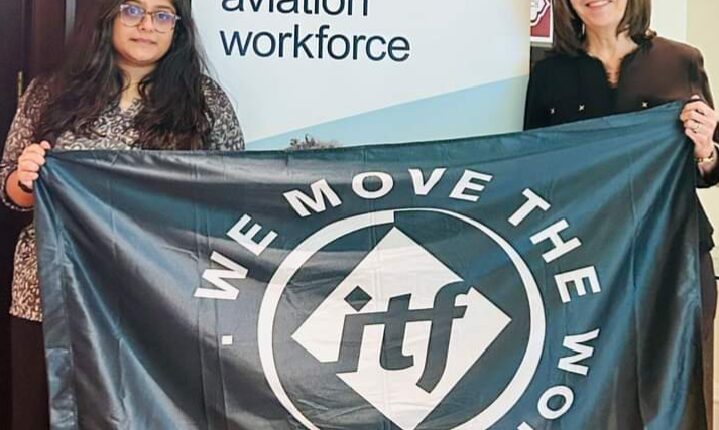ITF Says 70% Of Aviation Female Workers Regularly Experience Verbal Abuse At Work, Lobbies Govt To Ratify C – 190
The International Transport Workers Federation (ITF) has launched report ‘Make Work Safe: Eliminating Violence and Harassment Against Aviation Workers’ which found that 70% of aviation female workers regularly experience verbal abuse at work.
The International Transport Workers’ Federation (ITF) and transport unions globally campaign, lobby, organise, and negotiate to end gender-based violence and harassment in the workplace and the wider community. This commitment is central to the collective struggle for decent work, dignity, and equality for women transport workers across the globe.
The global theme for 2024 is “Every 10 minutes, a woman is killed. Unite to End Violence against Women. #NoExcuse.
The 16 Days of Activism against Gender-Based Violence is an international campaign that runs annually starting on 25 November, the International Day for the Elimination of Violence against Women, until 10 December, Human Rights Day — and is a rallying call for unions to intensify their efforts.
Ending violence against women transport workers is one of the priorities for the ITF Women Transport Workers’ Committee – which was re-confirmed at the recent ITF Congress. The ITF has been building a significant body of work around gender-based violence as a workers’ and human rights issue, working to support unions to put in place strategies that help break the silence and drive change to eliminate and address violence against women.
ITF Congress resolutions
This year, the ITF highlights key resolutions from our recent 46th Congress in Marrakech, Morocco, which were adopted to intensify our campaigns to eliminate violence and harassment and improve the working lives of women transport workers, including:
- Advertisement -
Unions backed a global ‘Get Me Home Safely’ campaign to combat the unacceptable risks faced by transport workers during commutes to and from work.
Congress resolved to dismantle the systemic barriers that exclude women from decision-making and safe and decent work in transport and logistics in a motion that marked 25 years since the establishment of the ITF Women Transport Workers’ Committee.
Congress called on unions to intensify campaigns for the ratification and effective implementation of ILO Violence and Harassment Convention 190 (C190).
Unions taking action: using C190 to drive change
ILO Convention 190 makes it clear that violence and harassment is incompatible with decent work. It addresses gender-based violence and supports women’s attraction, retention and progression in this male-dominated industry.
“As the 16 Days commence, we urge all unions to make use of the ITF’s C190 transport workers’ toolkit to build awareness, to campaign, and to negotiate stronger protections for workers,” said Meryem Halouani, ITF Women Transport Workers’ Committee Chair.
The ITF C190 transport toolkit specifically focuses on certain risk factors for women transport workers, such as domestic violence, third party violence, informal work and the commute.
Halouani called on unions to:
Lobby their government to ratify and effectively implement C190, ensuring national laws protect women transport workers from violence and harassment.
Campaign and negotiate C190 language into workplace agreements and policies that establish specific protections against violence and harassment for women.
“We know that of the 187 state members of the ILO, only 24% have ratified C190, and of those 45 states, not all have implemented its legislative and procedural measures to prevent violence and harassment in the world of work,” said ITF General Secretary Stephen Cotton.
“So, the challenge still very much stands for us to work with affiliates for ratification and effective implementation of this crucial international law, in order to make work safe for women transport workers – in legislation, regulation, workplace policies, collective bargaining agreements and occupational safety and health management.”




Comments are closed.